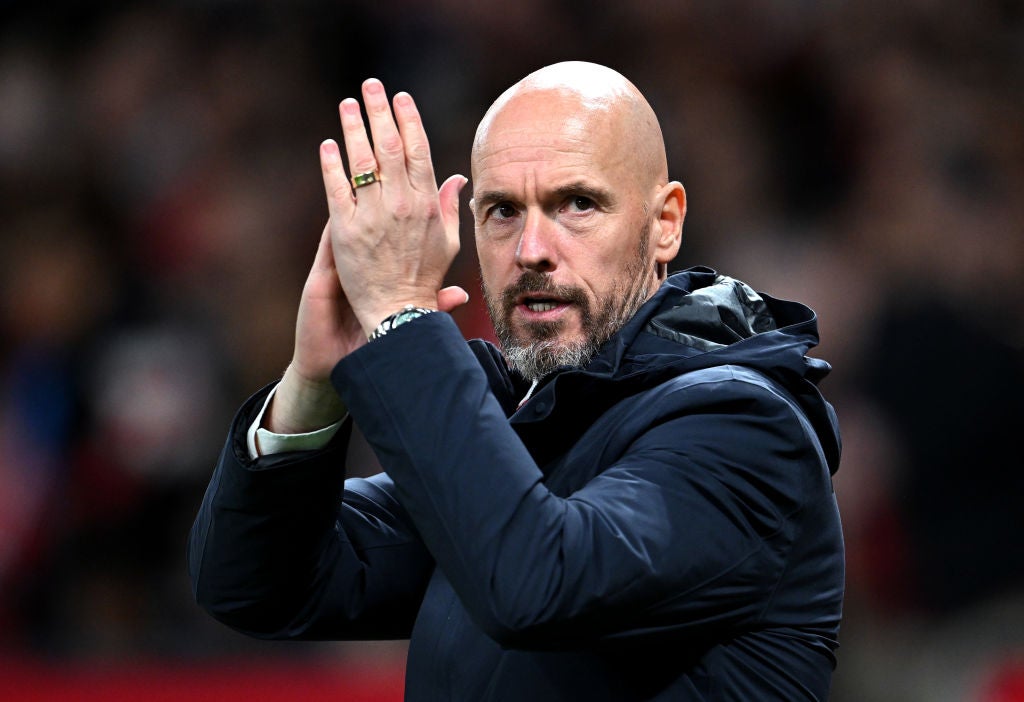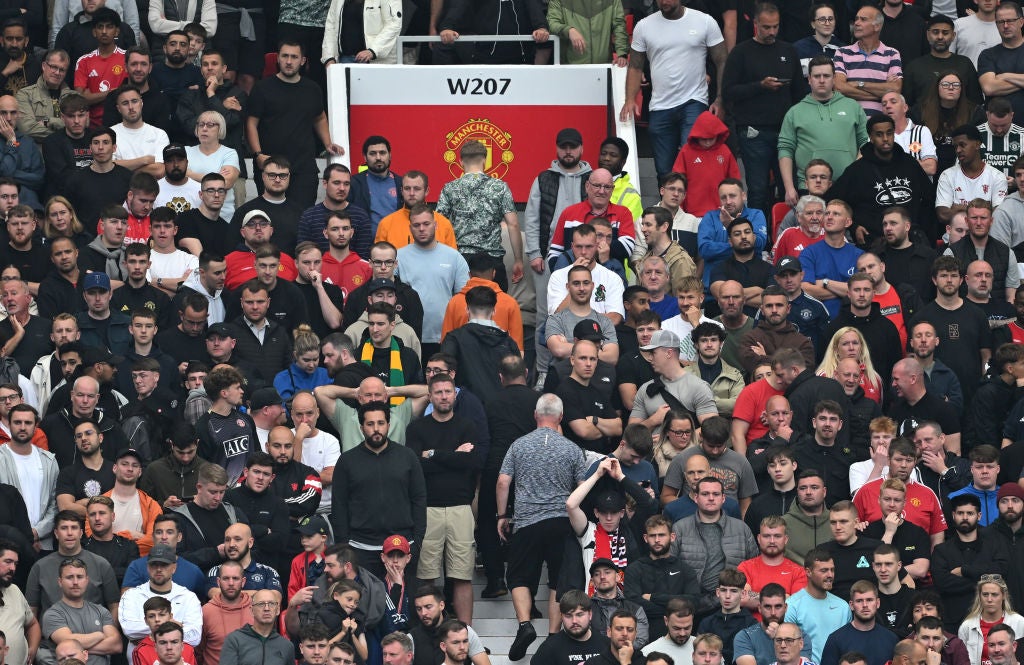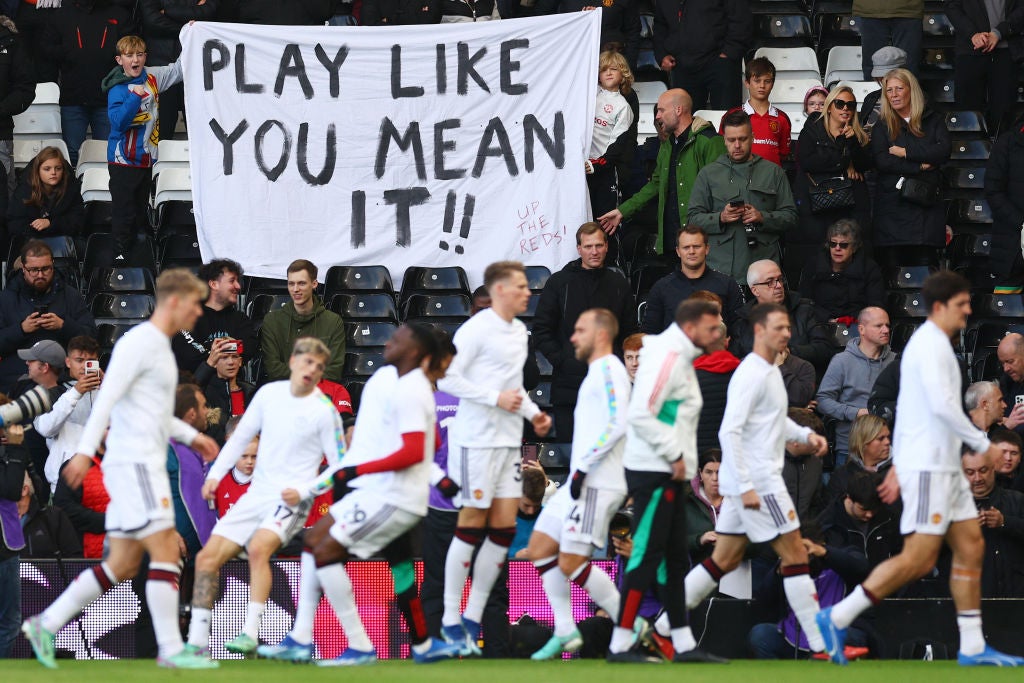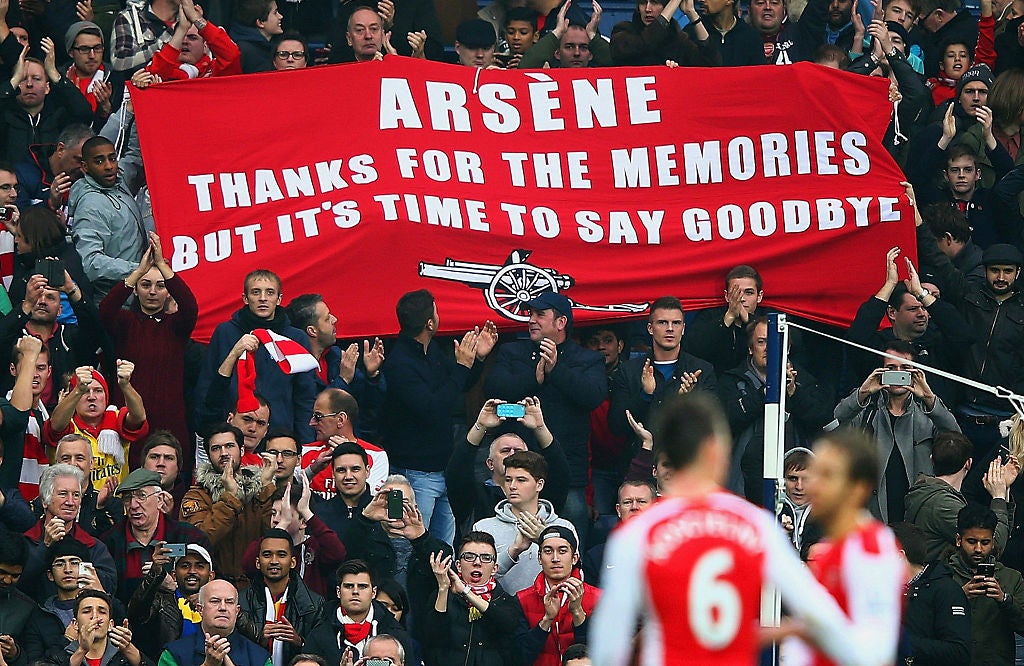Inside the ‘culture war’ ripping through the heart of Manchester United
Even as United have faced turbulent times on the pitch in the post-Sir Alex Ferguson era, support for the manager has remained consistent at Old Trafford. The toxicity has come from elsewhere and explains why football is becoming more divided, writes Miguel Delaney


Your support helps us to tell the story
From reproductive rights to climate change to Big Tech, The Independent is on the ground when the story is developing. Whether it's investigating the financials of Elon Musk's pro-Trump PAC or producing our latest documentary, 'The A Word', which shines a light on the American women fighting for reproductive rights, we know how important it is to parse out the facts from the messaging.
At such a critical moment in US history, we need reporters on the ground. Your donation allows us to keep sending journalists to speak to both sides of the story.
The Independent is trusted by Americans across the entire political spectrum. And unlike many other quality news outlets, we choose not to lock Americans out of our reporting and analysis with paywalls. We believe quality journalism should be available to everyone, paid for by those who can afford it.
Your support makes all the difference.When Manchester United announced that they were sticking with Erik ten Hag in June, explanations to the media made specific mention of “the fans”. The new club hierarchy were conscious of how supportive the mood was after the FA Cup win, and that it would have been a hugely unpopular decision to sack the Dutch coach at that point. If there’s now a temptation to wonder whether that stance was influenced by potentially fleeting fan emotions, you wouldn’t have thought so on Sunday.
The team may have looked weak in the 3-0 defeat to Liverpool but support for Ten Hag and his team stayed strong. Old Trafford has for a long time been a stadium that sings for the side no matter what. There can be boos and empty seats, sure, but United’s modern Premier League era has never seen the kind of open revolt against a manager that has been visible at other stadiums.
By contrast, external criticism often only serves to amplify support for the man in charge, while bringing considerable pushback against critics. You only have to listen to phone-ins or look at social media.
The point of this isn’t to stage yet another discussion on Ten Hag’s suitability and whether fan support is justified. It is more about how fascinating it is that this supporter stance has been so consistent through five manager cycles after Sir Alex Ferguson.
We can all recognise familiar patterns and even a sense of “end game” – although the club insist they fully back the manager – but still hear the same support. United haven’t even seen an equivalent of the situation at the club perhaps closest to them in this when Liverpool supporters just rejected Roy Hodgson. There can be anger in the concourse and pubs, as supporters at the FA Cup semi-final against Coventry City attest, but that doesn’t find an outlet pitchside.
As Barney Chilton, the editor of the long-running fanzine Red News. says, “There is a mindset from match-goers to support the manager at games come what may.” The crowd have certainly taken Ferguson’s valedictory request to heart, that their job now is to stand by the new manager.
The dynamic is all the more notable in a modern game besieged by capitalism and price rises, because it speaks to something deeper, to the idea of inherent cultural traits. Where it gets more interesting and complex, however, is when debate flares up outside the stadium – and, of course, online. It has almost given rise to a football club “culture war”, which takes in themes of romance versus realism and those who attend in real life against those who watch from afar; the classic online versus offline split.
It’s not hard to see how it’s developed at United. That culture was both influenced and instilled by the longevity of the club patriarchs. Sir Matt Busby was manager for a quarter of a century, before Ferguson surpassed him in both time and success, with the emotion around that only deepened by how that glory era came after narrowly surviving a tough first few years. This has been the great narrative that has shaped the club’s psychology. This, for many fans, is just what you do.

Richard Cann, a prominent voice on United fan discussion shows, believes Ferguson “still casts a huge shadow over the club”, which influences a lot of opinions on managers. Cann also uses the term “culture war”.
“There are still a lot of fans holding onto the idea that managers should be revered and it’s us against the rest of football,” Cann says. “So, if a manager gets external criticism, they weigh in behind them. We’re also still wedded to the idea of managers getting time. For older fans, there’s the memory of that 1990 FA Cup final after a terrible two seasons and ‘what if’.
“I think there’s a culture war between those clinging on to the simpler more romantic vision of United in the 1980s and 1990s against those who are younger and/or accept that the modern football world is different. There’s a degree of feeling that the club is more special than others, or should be more virtuous in how they treat people – which is ironic; that divide between older romantics and pragmatic realists.”
That point touches on a tension and motivation that goes further than pure football, and certainly online vs offline. As Chilton says, after all, “we’re all online” these days. It’s as much about fans holding onto traditional values and affecting what they can, in an elite football world that is accelerating away from them.
“The owners will sack, hire or back a manager no matter what we think so what’s the point of turning against your own when you are going to games at great expense to support,” Chilton says.
“I do think this will change as well. Clubs want more tickets that are one-game hospitality so when those one games go bad, they will turn ugly. Manchester United would have been a sh**show whatever United fans did but I am glad we stood united, pretty much, at games. We still make our points – banners like ‘play like you mean it’, even fanzines, but, at its core, turning at games won’t do the players’ confidence any good.”

Martha Newson is a psychologist who specialises in study of group behaviour through football, and describes some of these dynamics as “identity fusion”. It’s why cultural values become so important because it almost becomes a moral or even religious code by which people live.
“Many fans fuse to the club, they become one with it… part of oneself,” she says.
A further layer to this is how opposition fans have gleefully used United’s loyalty as a further barb to hurt them with. Liverpool fans sang “Ten Hag’s at the wheel” on Sunday, to follow “Ole’s at the wheel” and “stuck with Moyes”.
It makes the view of a rival supporter all the more relevant, especially when they endured the closest possible “culture war” to what United are experiencing.
Clive Palmer went to Arsenal as the fanbase put itself through the Wenger In/Wenger Out conflict. Some of it similarly came back to what the club was supposed to be about.

“I don’t speak for every fan but our culture was defined by division,” Palmer says. “It was in or out and not much in between. That was our fan culture. Today we have a more supportive, inclusive culture as [Mikel Arteta] has connected the club, and supporters are seen as super important in that culture.
“I totally see why many United fans support their manager regardless. We have this at Arsenal, we are supporters and that’s what we do.
“An issue today is that the modern fan is too informed. We can see data, shots conceded, the xG. You can’t hide in this world of hyperanalysis on every game. Every Premier League game is an event that defines your happiness for a week. Is this a healthy environment when undergoing culture change? Probably not.”
It is football, though. And, in terms of attending Old Trafford and offering support to the manager, this is United. Ten Hag can rely on that, even if some fans will think they can’t rely on results.



Join our commenting forum
Join thought-provoking conversations, follow other Independent readers and see their replies
Comments